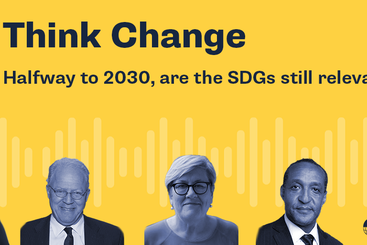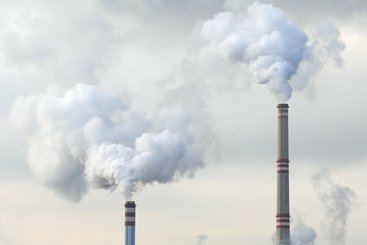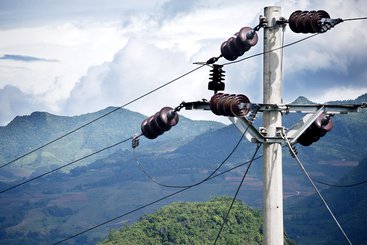As leaders review the Sustainable Development Goals (SDGs) this week, they must be reminded that the environmental, social and economic goals won’t be achieved without political action.
At mid-point, the SDGs are not a success. Not only are many targets off track, and the global pandemic has halted and reversed progress, for example on poverty reduction, but the world is struggling with meeting the social, economic and environmental objectives of the SDGs at the same time. At ODI, we have been delving into the question of whether socially inclusive, environmentally sustainable economic transformation can be achieved, and how we can enable the joined-up, cross-sector decision-making required.
A few findings illustrate the challenge. Others indicate the potential. Some were revealed at a recent HLPF side event on Inclusive, Sustainable Economic Transformation in July 2023. Presentations from the governments of the Dominican Republic, Indonesia and Kenya highlighted the immense effort required to strike a balance and synergy between social, economic and environmental objectives over long periods of time: this does not come easily or cheaply.
Getting change at the national level
The Dominican Republic has developed a number of ‘pacts’ – in education, electricity and (forthcoming) fiscal policy to join up initiatives of different institutions around a common issue. Education is seen as a hub for integration: 25% of the government budget is allocated to education; 24 out of 32 government policies can make use of schools in implementation, and boys and girls can influence their families and wider society. Kenya, through the devolution of powers and resources to 47 counties, has strengthened its focus both on inclusion of left-behind groups and areas and on County Integrated Development Plans, to bring initiatives together. Indonesia has signed up to a Just Energy Transition Partnership with some international funding and support to assist the transition from coal, which represents 2% of GDP and over 30% of province GDP, in two provinces. Moving this path-dependent element of Indonesia’s economic structure will require significant resources and long-term commitment from governments, local stakeholders and international agencies.
To assess progress across countries in achieving inclusion and poverty reduction, economic transformation and environmental sustainability, we’ve developed a set of indicators. The global challenge is that no country excels on all three sets of indicators simultaneously. However, certain countries, including the Dominican Republic, have displayed consistent moderate performance during the period 2000–2019. This moderate success can be attributed to factors such as crises and assessments of failures in responding to past crises, major internal processes of change such as constitutional reform, pressure from the market to achieve certain standards, ideological innovation and external processes such as the SDGs if these are nationalised. Our ongoing work on this will culminate in a major ODI report, set to be launched in early 2024.
Bringing environmental concerns from the margins to the centre
While economic transformation has long been central to many countries’ policy agendas, inclusion was a child of the 1990s, and sustainability of the 2000s. The challenge is often bringing environmental concerns from the margins to the forefront of government agendas. In Bangladesh for example, achieving environmental objectives is the most challenging of the three because of the triple pressure from population density, poverty and rapid economic growth; while Bangladesh plays a leading role in international climate change negotiations, putting its own water sector in order faces numerous challenges including ‘weak local governance and implementation of laws, overlapping mandates, need for institutional incentive mechanisms for strengthening sectoral management, clear role distribution among stakeholders, reforming existing laws and acts to ensure the water governance and delivering justice’. (Quoted from a forthcoming report (2023) Inclusive, sustainable economic transformation by Fahmida Khatun et al, CPD.) The transnational context of water management in Bangladesh also means this is a South Asian issue.
Innovation, both technological and institutional, is imperative to address the complex challenges we face. This is not easy, even in a society which prides itself on its innovator networks, like Thailand. However, their recent Bio-Green Circular Economy initiative demonstrates their commitment to finding solutions.
The potential
Despite the hurdles, there is reason for optimism. It is indeed possible to achieve poverty reduction, moving the bottom 50% of the global distribution up a notch with only minor reductions in consumption from the wealthiest 10%, all while staying within planetary boundaries. Although the majority of the wealthiest individuals reside in high-income countries, the proportion is growing in middle-income countries. The political challenge will be to persuade these wealthy groups to reduce consumption especially of transport and certain high emissions foods. Research on this will be published soon. (Improving living standards within stringent carbon budgets: the critical importance of climate equity. Forthcoming ODI working paper, 2023)
Climate finance has emerged as a powerful tool capable of integrating social, economic and environmental objectives, at least as evidenced by the practices of multilateral funds. While they have been criticised for their lengthy procedures and slow disbursement, these funds have laid the foundations for accelerated and expanded action.
Whether this extends to the World Bank, a major provider of climate finance, may be questionable following this Centre for Global Development analysis of the World Bank’s climate finance portfolio. Watch this space for a further analysis of the Bank’s portfolio.
A concluding recommendation
Achieving a better balance between social, economic and environmental outcomes requires both political action – galvanising better coordination across sectors and nations, and shaping consumption habits of the rich; and institutional as well as technical innovation to create and implement policies in support of inclusive, sustainable economic transformation. The United Nations plays a major role in supporting countries on both fronts. It would be great to see the SDG Summit deliver strong messages on the importance of galvanising political action (what are the rewards for politicians?) and fostering innovation, not only in the Global South but worldwide.



